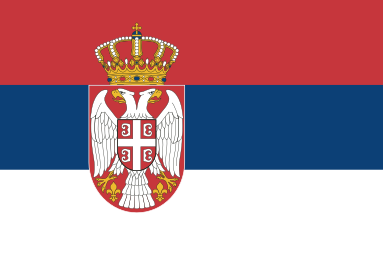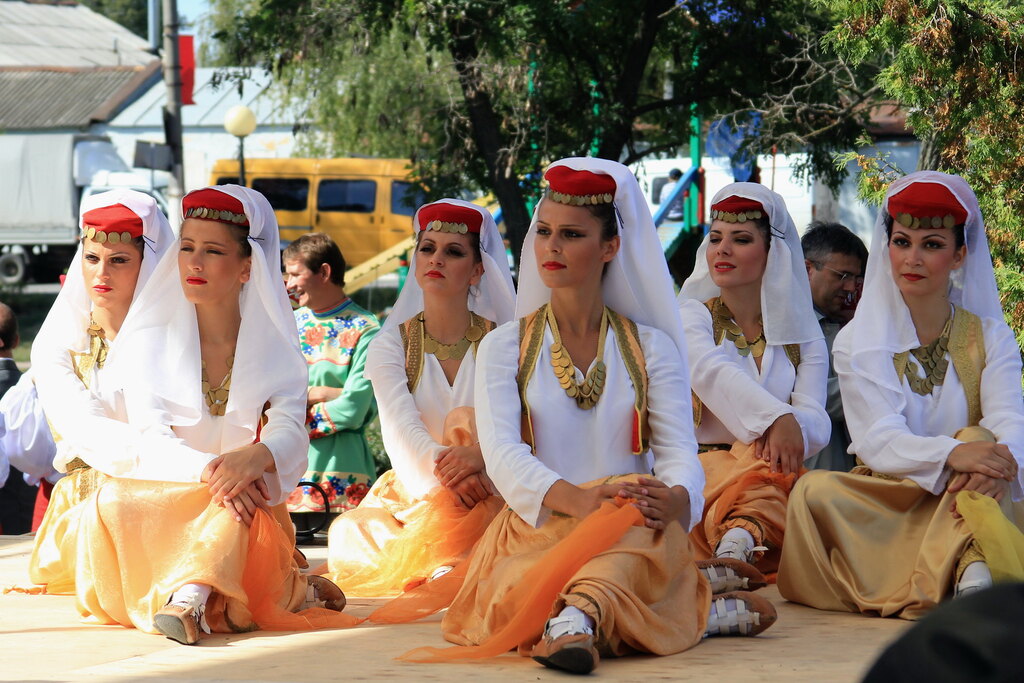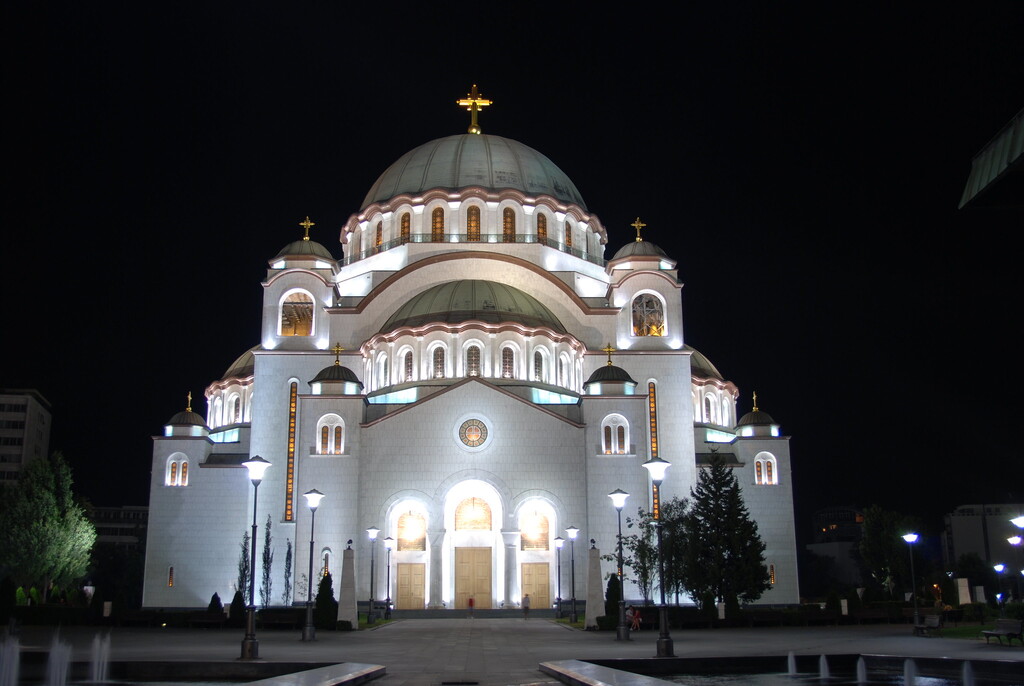Welcome to our Guide to Serbian Culture, Etiquette & Business Practices

With a dash of kajmak and a sprinkle of ajvar, Serbia embraces you with warm hospitality, unshakable pride and a never-ending supply of cheerful Balkan eccentricity!
What will you learn about Serbia?
This guide will give you an understanding of a number of key areas including:
- Language
- Religion and beliefs
- Culture and society
- Social etiquette and customs
- Business culture and etiquette
Skip to a section or scroll on...
- Facts and Statistics
- Introduction to Serbia
- Language in Serbia
- Serbian Culture & Society
- Social Customs & Etiquette
- Business Culture & Practice
STEREOTYPES
Remember this is only a very basic level introduction to Serbian culture and the people; it can not account for the diversity within Serbian society and is not meant in any way to stereotype all Serbian people you may meet!
FACTS AND STATISTICS
- Location: Serbia is a landlocked country in southeastern Europe. It shares borders with Hungary to the north, Romania and Bulgaria to the east, North Macedonia to the south, Albania and Montenegro to the southwest, and Bosnia and Herzegovina to the west.
- Capital: Belgrade
- Population: 6.8 million (2022)
- Ethnic Make-up: Serbs 83%, Hungarians 3.5%, Bosniaks 2%, Roma 4%, remaining population is mainly made up of Croats, Montenegrins, and Slovenes, followed by smaller populations of Albanians, Bulgarians, Macedonians, and Romanians.
- Religions: The Serbs tend to identify as Eastern Orthodox. Approximately 5% identify with Catholicism, 1% with Protestantism and 3% with Islam.

Serbian dancers in traditional costumes.
INTRODUCTION TO SERBIA
Serbia is a nation with a rich history, vibrant culture and a unique sense of identity. In recent history, Serbia experienced significant changes, including the dissolution of Yugoslavia and the subsequent conflicts in the 1990s. These conflicts, particularly the wars in Croatia, Bosnia and Herzegovina, and Kosovo, left a lasting impact on the country.
Culturally, Serbia is a fascinating blend of influences from the East and the West. It has a diverse heritage stemming from its position at the crossroads of different civilizations, resulting in a unique cultural mosaic. Serbs take great pride in their history and cultural heritage, evident in the numerous historical landmarks and monasteries found throughout the country.
In terms of identity, Serbia cherishes its Orthodox Christian heritage, which plays a significant role in shaping the national character. The Serbian language, written in Cyrillic script, is an essential part of the cultural identity and serves as a symbol of resilience.
In the current situation, Serbia strives for stability, economic growth, and integration into the European Union. The country has made progress in recent years in terms of economic development and foreign investments. However, challenges such as unemployment, brain drain, and social disparities still exist.
LANGUAGE IN SERBIA
The modern-day Serbian language is a rich and dynamic Slavic language spoken by approximately 9 million people worldwide.
It belongs to the South Slavic branch of languages and shares many similarities with other Slavic languages such as Croatian and Bosnian. Serbian is the official language of Serbia and one of the official languages in Bosnia and Herzegovina, Montenegro, and Kosovo.
It is written in both Cyrillic and Latin scripts, offering its speakers the choice to use either alphabet. The Serbian language has evolved over centuries, influenced by various historical, cultural, and linguistic factors. Today, it is characterized by a diverse vocabulary, with a blend of native Slavic words, loanwords from other languages, and technical terminology. Modern Serbian remains a vital means of communication, preserving the cultural heritage and connecting the Serbian people with their past while embracing the challenges and opportunities of the present day.
Hungarian is often spoken by Hungarians living primarily in the northern province of Vojvodina, Bosniaks who are principally located in the southwestern regions of Serbia are likely to speak Bosnian and Albanians, who are principally located in the Preševo Valley region in the South are likely to speak Albanian.

The Cathedral of Saint Sava is an Orthodox church in Belgrade, the capital of Serbia, the largest in the world. The church is dedicated to Saint Sava, the founder of the Serbian Orthodox Church and an important figure in medieval Serbia. Photo taken by George M. Groutas on Flickr (CC BY-SA 2.0)
SERBIAN CULTURE & SOCIETY
The Family:
- Traditionally, Serbian society has been characterized by strong family ties and a collectivist approach to family life.
- However, as society has modernized and globalized, there have been changes in family dynamics and structures.
- As with most societies, single-parent and blended families are becoming more common.
- However, Serbia does not legally recognize same-sex marriage or provide legal protections for same-sex couples which means same-sex couples are a little less likely to live openly together.
- This doesn’t mean that progress isn’t being made however as Serbia ran its first Pride March in 2017 and anti-discrimination laws have been amended to include sexual orientation and gender identity as protected categories.
The Role of Religion:
- Religion plays an important role in Serbian society and the majority of Serbians identify with the Serbian Orthodox Church.
- The Serbian Orthodox Church has played a key role in shaping Serbian culture, customs, traditions, celebrations and identity.
- Religion has also shaped key moral and ethical frameworks in Serbia, which in turn influences individuals’ attitudes, values, conduct and beliefs as to what is right / wrong / acceptable/unacceptable.
- Religious holidays, such as Xmas and Easter are an important part of Serbian culture.
- They are further complemented by unique Serbian traditions, such as the annual ‘Slava’ celebrations, whereby families celebrate their patron saint.
- The family’s patron saint is passed down from father to son.
- Women typically adopt the patron saint of their spouse when they marry.
Traditional Serbian Ćevapi with beer, ketchup, mustard and sour cream. Photo by Nenad Stojkovic on Flickr (CC BY-NC 2.0)
Serbian Food:
- Serbian cuisine is known for its hearty and flavorful dishes, often influenced by the country's Balkan and Ottoman heritage.
- One of the most famous Serbian dishes is Ćevapi, grilled minced meat sausages typically made from a mixture of beef and pork, served with a traditional flatbread called lepinja and often accompanied by onions and kaymak.
- Pljeskavica is another popular Serbian dish, which is a large grilled meat patty made from a mixture of ground beef, pork, and spices. It is usually served in a lepinja with various toppings and condiments.
- Ajvar is a delicious Serbian relish made from roasted red bell peppers, garlic, and oil. It has a rich, smoky flavour and is often enjoyed as a condiment with grilled meats or as a spread on bread.
- Sarma is a traditional Serbian dish consisting of cabbage leaves stuffed with a mixture of ground meat (usually pork or beef) and rice, cooked in a savoury tomato-based sauce.
- Burek is a beloved Serbian pastry made with flaky phyllo dough filled with various ingredients such as cheese, meat, or spinach. It is a popular breakfast or snack option.
- Kajmak, as mentioned earlier, is a creamy dairy product that is often enjoyed as a spread on bread or as an accompaniment to grilled meats. Its rich and tangy flavour adds a delightful touch to many Serbian dishes.
SOCIAL ETIQUETTE & PROTOCOL IN SERBIA
Meeting and Greeting:
- The most common greeting is a handshake, with direct eye contact, and a smile.
- The most common Serbian greeting is "Dobar dan" (Good day) or "Zdravo" (Hello). "Dobro jutro" (Good morning) is used until around noon, while "Dobra večer" (Good evening) is used from the late afternoon until night. Use the appropriate greeting based on the time of day.
- Kisses on the cheek might be shared amongst close friends and family.
- Although the number of kisses may vary from region to region, two kisses tend to be the most common.
- It is considered good manners to greet older people first and to let them enter a room or pass through a door before you.
- Serbians generally have a more relaxed attitude towards physical contact.
- However, we suggest you stay on the safe side and observe personal boundaries, as this is not always the case.
- You should not be surprised though if someone lightly touches you on the arm or shoulder during conversations.
Gift-Giving Etiquette:
- Gift-giving plays an important role in Serbian culture and is viewed as a gesture of goodwill and appreciation.
- They are most commonly exchanged at Christmas, Easter, birthdays, weddings and to thank someone from a meal invite.
- Meaningful gifts trump expensive gifts. Where possible, give something that has some kind of meaning, such as a gift from your home country or something that meets their personal tastes.
- It is customary to bring a small gift when invited to someone's home for dinner or as a token of gratitude for hospitality.
- Wine, flowers, or sweets tend to be appreciated.
- If bringing flowers then it’s custom to bring a bouquet with an odd number of flowers. Even numbers tend to be used for funerals.
It is not common to exchange business gifts during business relationships. - However, if you’ve travelled from overseas, then an inexpensive thoughtful souvenir of your home country will be well received.
- Don’t embarrass people by giving them expensive gifts. This is unlikely to make them feel uncomfortable.
Dining Etiquette:
- Hospitality, respect, and socializing are the most important part of dining etiquette in Serbian culture.
- If invited to eat with Serbian peers then be sure to greet everyone and wait for the host to assign you your seat.
- Table manners are important. Ensure you keep your elbows off the table, avoid talking with your mouth full, and chew with your mouth closed.
- Ask someone to pass dishes to you rather than reaching across the table to take them.
- Table manners are Continental - hold the fork in the left hand and the knife in the right while eating.
- It is not unusual for meals in Serbia, to begin with a toast which is usually led by the host or an honored guest.
- Raise your glass, make eye contact with everyone, and be aware that you may need to chink glasses.
- Try everything as hospitality is important in Serbia and your willingness to accept what you are offered will be appreciated.
Tipping:
- While tipping is not mandatory in Serbia, it tends to be appreciated in appropriate settings.
- We suggest that, as a general rule, you tip 10% in restaurants and more if service has been exceptional, or, if you’ve eaten in a high-class restaurant.
- It is not customary to tip taxi drivers, but you may want to tell them to keep the change from your fare.
- Visitors don’t tend to tip cloakroom attendants, or bar staff unless there is a communal tip box.
Basketball is very popular in Serbia and the region as a whole. Photo by cdephotos (CC BY 2.0)
SERBIAN BUSINESS CULTURE & PRACTICES
If you're looking for expert help and advice on how to work effectively with Serbians, then this is what we do!
Click here to learn more about our customized cultural training.
Business Etiquette:
- When conducting business, err on the side of formality and adhere to conservative etiquette and protocol.
- There are marked differences between young entrepreneurs and older businesspeople.
- Younger businesspeople generally have a less bureaucratic approach and are eager to do what is required to close a deal.
Building Relationships & Communication:
- Serbians value politeness and respect when interacting with others.
- Much like the British, they use "molim" (please) and "hvala" (thank you) frequently when talking and it’s considered rude to omit these words.
- Typically, Serbians tend to be fairly direct communicators. As such, you should aim to be straightforward when expressing your ideas and opinions.
- Avoid insinuating or using body language / facial expressions to convey meaning as your Serbian counterparts are likely to be unable to interpret your meaning.
- Maintain a professional tone but feel free to engage in a lively discussion.
- Avoid interrupting others and allow everyone to express their viewpoints.
- Business relationships tend to be characterized by a mix of formality and personal connections.
- Building and maintaining strong relationships is essential for conducting successful business.
- You should take the time to build rapport and engage in small talk before diving into business matters as this demonstrates respect and helps build long-lasting relationships by demonstrating that your contact is more important than the business at hand.
- Serbian business culture tends to be hierarchical. As such, respect for authority is typically highly valued. It is important to show respect to individuals in higher positions by using appropriate titles and addressing them with formal language, especially in initial interactions.
- Wait for the individual to invite you to move to first names.
- Due to the value placed on relationships and trust, Serbian business culture tends to value face-to-face meetings and personal interactions.
- As such, you may find it is preferable to arrange in-person meetings rather than relying on emails or phone calls.
- This personal edge provides the setting for building trust, and establishing a stronger connection which will go a long way to boosting your business outcomes.
- The value placed on trust means that it’s important you are reliable and deliver on your word.
- Failing to do so can significantly damage your relationship.
- Serbian business communication is generally more formal, especially in initial interactions or when dealing with individuals in higher positions.
- As mentioned, you should show respect and use appropriate titles and honorifics where necessary.
- Humility and modesty are valued traits, and overt displays of wealth or achievements may be seen as arrogant or boastful.
- Avoid showing off or making obvious statements of wealth in the way you dress or the things you say.
Business Meetings & Negotiations:
- The value placed on formality and hierarchy means that business meetings in Serbia may well follow a formal and professional approach.
- However, the value placed on relationships means that they may also be very friendly with a personal touch.
- Appointments are necessary and face-to-face meetings should ideally be scheduled a couple of weeks in advance.
- Don’t turn up without an appointment as this will not be viewed well. Particularly if the person you wish to meet with is more senior.
- It’s a good idea to dress formally and wear business clothing when attending meetings.
- Since business cards are commonly used, then it’s good practice to bring some with you.
- There will be a period of small talk while your colleagues get to know you and decide if you are the type of person with whom they wish to enter a business relationship.
- Wait to be told where to sit. In many cases, you will be seated across from someone of a similar level.
- If you bring materials for your Serbian counterparts to read, then it’s recommended that you have translated copies available. Although Serbians often have good English, it is a sign of good manners and respect and demonstrates that you have made an effort.
- Presentations should be thorough, clear, and concise and include backup analysis to support your position.
- Serbians tend to prefer clear, well-thought-through logic and arguments.
- Don’t present information that relies on your gut instinct, or that isn’t well founded.
- The focus on logic and clear arguments means that you should be prepared to discuss each point thoroughly before moving on to the next.
- Business – particularly decision-making, might move a little more slowly due to the value placed on hierarchy and formality.
- It’s fair to say that Serbians will not appreciate being rushed into making a deal or pushed during the sales process.
- This will not be perceived well due to the emphasis placed on logic and rationale.
- Unless they feel something is of interest, or has potential, agreement is unlikely.
- Even if an idea / product is well received, the hierarchical nature of Serbian organizations makes it likely that sign-off from a more senior body is necessary. This further endorses the need to avoid pushing or using hard sales tactics.
- Meetings often conclude with a summary of the discussion and a toast to future dealings.
The Role of a Manager:
- There is often a wide gap between managers and their subordinates, although this is less so in newer companies, high-tech companies, or other high-growth industries.
- Managers are expected to give precise directions to subordinates when assigning tasks so that there is no question about what is expected.
- In professional jobs, directions may be in the form of broad guidelines with the expected method, the format of results, and protocols to be observed clearly delineated.
- Read more about the Serbian management style.
Thank you for reading our guide to Serbia.
We hope you found it useful.
If you have anything to add to our country profile please contact us via the form below as we are keen to ensure accuracy.
Did you know you can license our Culture Guides for upload to your LMS or intranet?

 +44 0330 027 0207 or +1 (818) 532-6908
+44 0330 027 0207 or +1 (818) 532-6908



